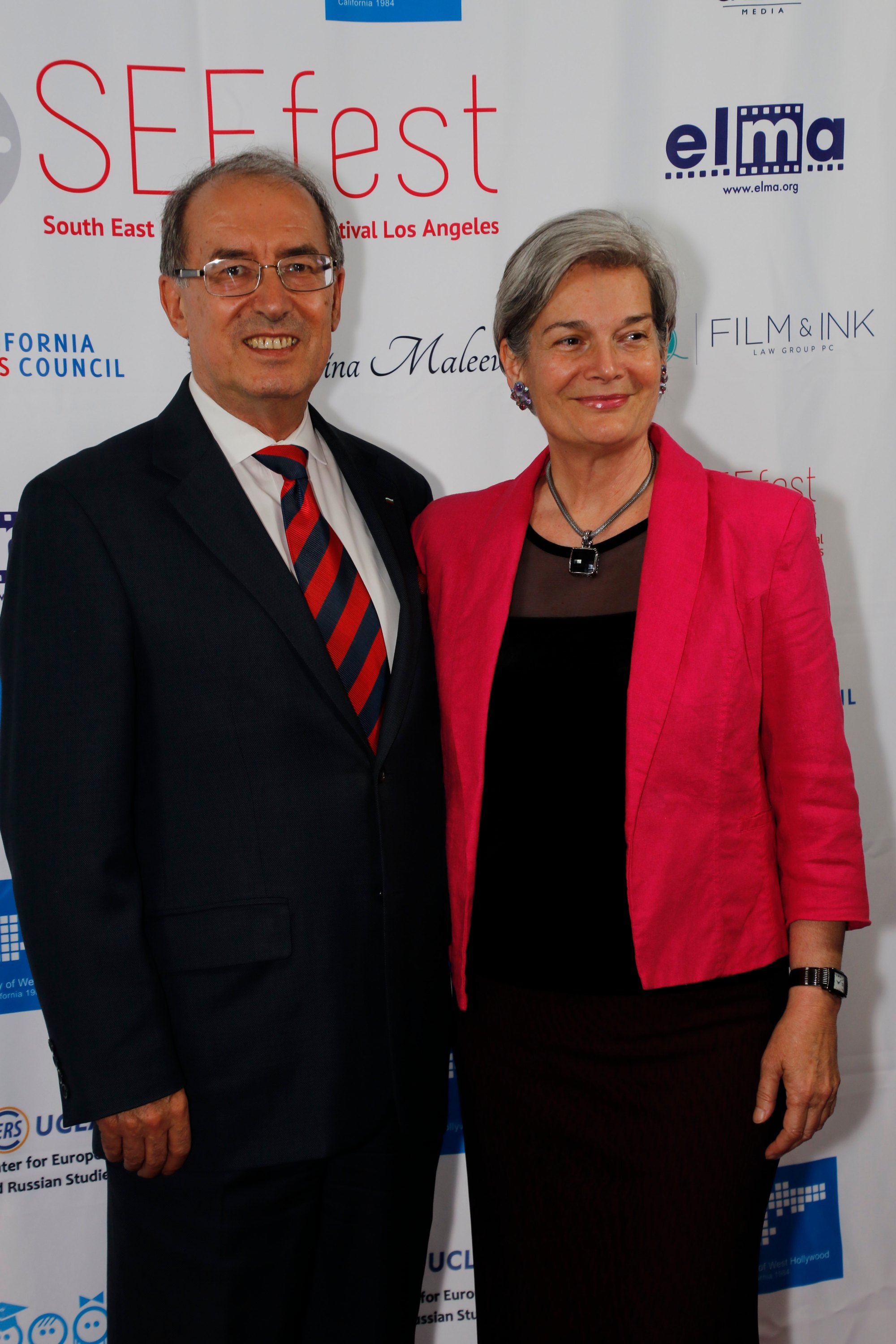
- Festivals
Noteworthy Eastern European Cinema at SEEfest
A lively crowd of mostly Balkan Europeans filled the Writers Guild Theater on Doheny in Beverly Hills on May 1st, 2019 for the opening of SEEfest. The Los Angeles festival, whose mission is to promote works from the South Eastern European regions, has grown slowly but steadily over the last 14 years. Although it has remained modest and simple in its presentations, which gives it a special edge is its content. Representing countries with strong cinematic traditions such as Romania and Serbia, SEEfest may be counted on to bring intellectually stimulating programs to Angeleno audiences.
At this year’s opening ceremony dignitaries – including the Mayor of Beverly Hills John Mirisch – were acknowledged by Artistic Director Vera Mijojlić and Mistress of Ceremony Hettie Lynne Hurtes. Honoree Gregory Laemmle, President of the Laemmle Theaters, received SEE’s Legacy Award for his contribution to international cinema, as a major exhibitor of arthouse foreign films.
The opening night thriller – Moon Hotel Kabul – which was also submitted for Golden Globe consideration- is the newest film by female Romanian director Anca Damian. The story follows Ivan, an uncompromising and defiant Romanian journalist who finds himself on a mission to discover the truth surrounding the alleged suicide of Ioanna, a woman who posed as an interpreter in Afghanistan. Even though the journey leads him from Kabul to a rural village in the outskirts of Bucharest, where he experiences tender moments with Ioanna’s mourning mother and mentally disabled brother, the truth remains elusive, tangled-up in hidden circumstances, until the end. The long-winding structure and poignant visuals of Damian’s film make for a truly European cinematic experience, offering undertones of the historical conditions plaguing the ex-communist country.
The Delegation, an award-winning film by Albanian Bujar Alimani, another film submitted for Golden Globe consideration, uses Kafkaesque dark comedy in order to look back to Albania in 1990 when the country still struggled to emancipate itself from an oppressive regime. Irina, the third Golden Globe submission from Bulgaria by Nadejda Koseva, centers around the contemporary story of a young woman who struggles to overcome poverty by becoming a surrogate mother.
An interesting sci-fi program brought together nine films from Serbia, Croatia, Georgia, Croatia, Cyprus, and Greece, in an exploration of modern fantastical allegories.
Politics intermingled with heart-wrenching emotions throughout SEE’s feature program with Borders, Raindrops (Bosnia Herzegovina, Montenegro), Crush My Heart (Austria), Deep Cuts (Croatia), I Act I Am (Bosnia Herzegovina, Slovenia, Croatia), Together (Slovenia), among others. It is no coincidence that the festival opted to close with the West Coast premiere of the documentary Regeneration by Emir Kapetanovic, where two young ‘reconciliation ambassadors’ embark on a journey to expose and heal wounds from the war-torn Bosnia Herzegovina.
The festival pays attention to its visiting filmmakers and offers a few interesting educational and industry programs, including a literary salon, and an annual Business of Film Conference. The Accelerator program gives filmmakers of select projects the chance to share and learn with several industry professionals tackling all areas of expertise, from production to exhibition.
SEE is a competitive film festival and awards are presented to the Best Feature, Documentary, Narrative Short, Short Documentary, Animation and Cinematography for fiction/documentary films.

